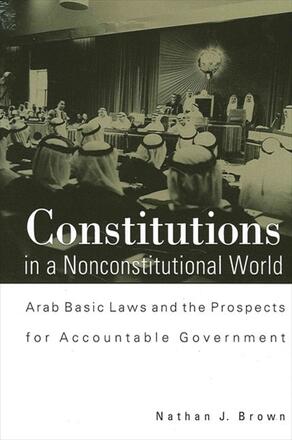
Constitutions in a Nonconstitutional World
Arab Basic Laws and the Prospects for Accountable Government
Alternative formats available from:
Uses the Arab experience to explain the appeal of constitutional documents to authoritarian political regimes.
Description
The collapse of authoritarian regimes and the global resurgence of liberal democracy has led to a renewed interest in constitutions and constitutionalism among scholars and political activists alike. This book uses the Arab experience to explain the appeal of constitutional documents to authoritarian regimes and assesses the degree to which such constitutions can be used in the effort to make the regimes more accountable.
Nathan J. Brown is Professor of Political Science and International Affairs at George Washington University. He is the author of The Rule of Law in the Arab World: Courts in Egypt and the Gulf and Peasant Politics in Modern Egypt: The Struggle Against the State.
Reviews
"Brown understands how law fits in with the burning issues of Middle Eastern politics. He demonstrates how rulers can use law and constitutions to strengthen their rule, while most of the existing literature focuses on how they restrict central power. This is particularly interesting in light of the last ten years of liberalization in the Third World, where rulers in Africa, for example, have had to figure out how to meet International Monetary Fund demands for a degree of political liberalization without actually giving up power. " — Jill Crystal, author of Oil and Politics in the Gulf: Rulers and Merchants in Kuwait and Qatar